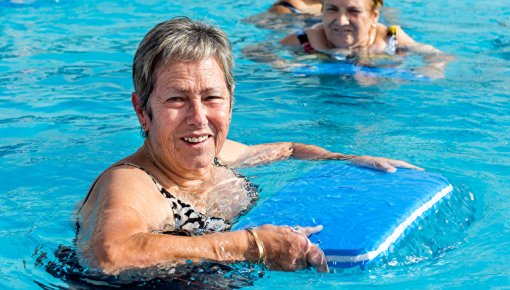It affected my whole body
I constantly had to lie down and rest. I woke up regularly in the night and had to change the position of my painful leg. I often bolstered it with pillows. At some stage, my knee swelled up and my hip started hurting.
I had started to walk differently to ease the pain in my leg. That changed my whole body – its whole structure, so to speak. The unnatural position gave me back ache. So my knee problems had started affecting my whole body. That took quite a toll on my mood.
It went on for many years, with everything very gradually getting worse. I eventually went to see my doctor. He diagnosed osteoarthritis.
Osteoarthritis probably runs in my family. My mother and grandmother both had it. My mother also had a joint replacement.

